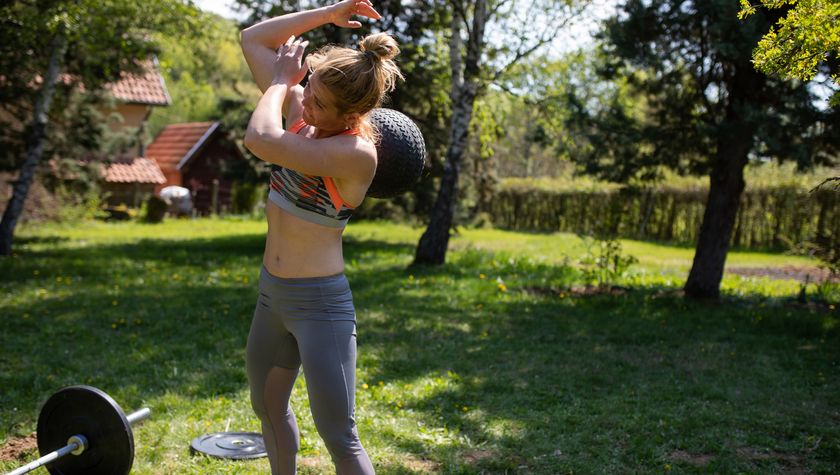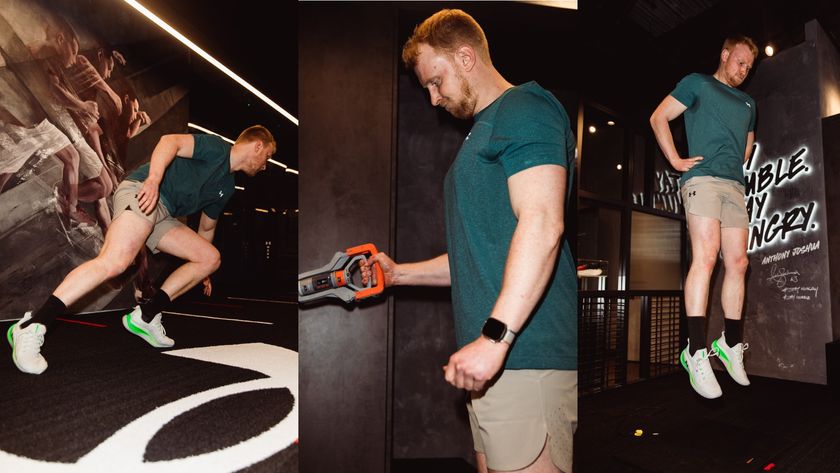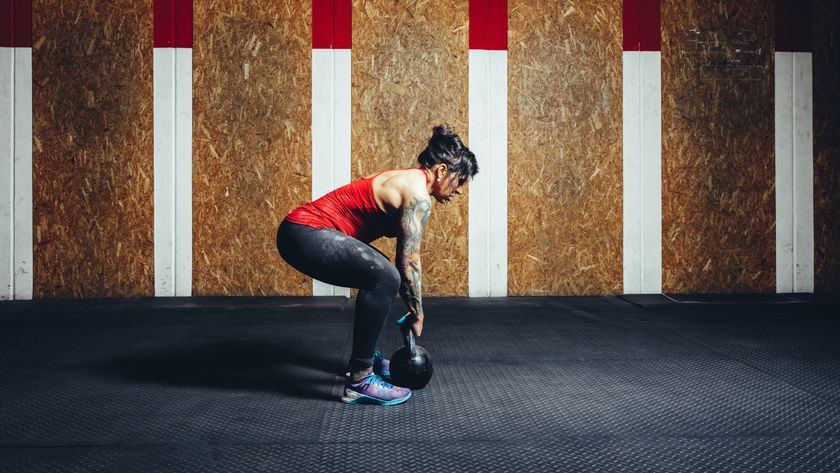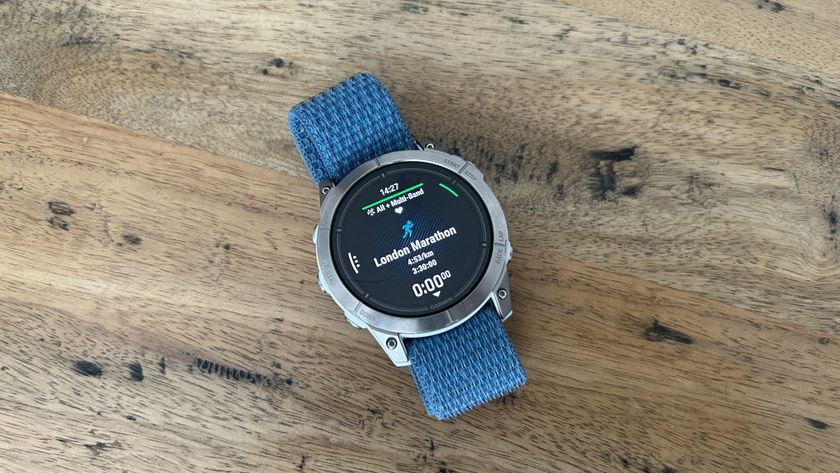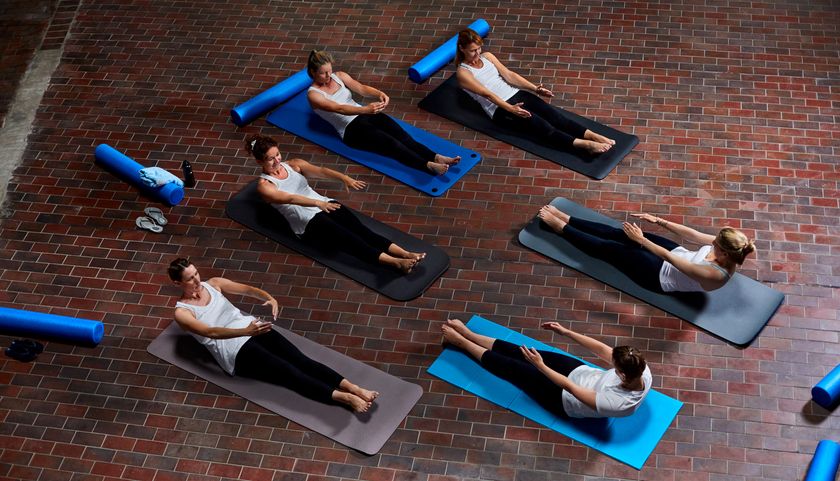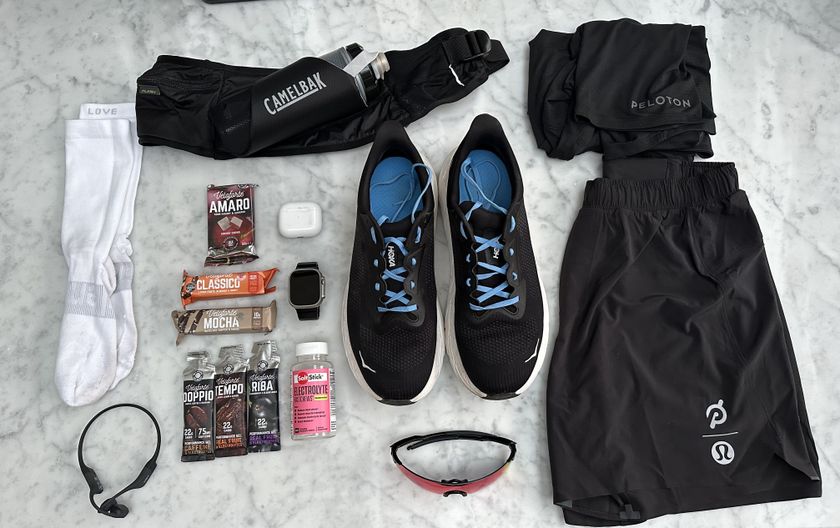What You Need To Know About Concussion In Amateur Sport
Expert advice on how to spot and react to concussions

It seems obvious to say that whatever level of sport you compete at, you shouldn’t take any unnecessary risks with your brain. However, concussion is not always an easy injury to spot, and even when it is clear that it’s occurred, people at the amateur level in particular aren’t always sure how long they should take to recover.
To clarify concussion and what you should do about it, we spoke to Dr Richard Sylvester, consultant neurologist at the Institute of Sport Exercise & Health.
What is concussion?
The simple answer is concussion is a mild traumatic brain injury. The complicated answer is we don’t really know, because the problem is when you get an injury around the head and neck you can get symptoms from lots of different things. So, for instance, a neck injury can cause headaches that have nothing directly to do with the brain. But for the purposes of simplicity, it’s a brain injury that causes fairly rapid symptoms and usually gets better spontaneously.
How do concussions occur? Is it always an impact injury?
It doesn’t actually have to be an impact injury. Your brain is made up of billions and billions of cells, and there are a lot of things keeping them in place, feeding them, keeping them healthy. What we think disrupts that and causes an acute brain injury is not necessarily an impact to the head, when your skull protects you. It’s the deceleration – so your brain moves very rapidly – or even the rotation that you get with these injuries.
So your brain is sitting there inside some fluid and it’s protected by the very thick bone of the skull, which protects from direct impact. But when you have an impact either to the head or upper body, or deceleration, you get rapid movement in the brain, and that’s probably the hallmark of the injury that causes concussion.
So you could have it without a direct impact?
Yeah. The thing that I often see is, say, a rugby player is tackled and it’s an upper chest impact, but their neck gets almost a whiplash-like mechanism. That causes the brain injury.
How can you identify concussion?
It is really difficult to diagnose, even for experts, so in the amateur game where you don’t necessarily have medically-trained people present it can be even more difficult.
Get the Coach Newsletter
Sign up for workout ideas, training advice, reviews of the latest gear and more.
The first thing is that if you see someone is unconscious, even briefly, then that’s pretty likely to be a brain problem. But actually loss of consciousness only occurs after about 10% of concussions and that can even be missed. In the professional sporting game you get replays from multiple cameras and sometimes you look at three or four replays before you see someone briefly losing consciousness.
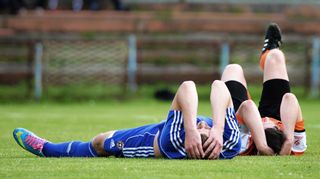
There are other things to look out for, too. People often lose their balance – they stagger around like Bambi. That unsteadiness is called ataxia. There’s also confusion, which is a very common feature immediately afterwards.
There are these things called the Maddocks questions, which is what you’ll see the physios or the doctor asking players on the pitch. Things like what day is it, what match is it, what’s the score. Someone could get those questions wrong but not realise there’s a problem with them. It’s key that the person making the decision about carrying on playing shouldn’t be the individual affected.
So concussion is a combination of observable abnormalities such as loss of balance, loss of consciousness, and confusion or disorientation, and then symptoms like double vision, headaches, dizziness, sometimes emotional instability – so getting very angry or emotional out of proportion to the situation.
It’s made more complicated in that the onset of symptoms can be delayed. Some people take a very big hit and feel fine, but then feel bad later – although that’s less common.
The other thing we know is the harder you look for problems, the more likely it is you’ll find them. In American football there is a baseline set of tests they do about balance and memory, and then they retest pitch-side, and that procedure takes 10-15 minutes. The longer you test the more likely you are to find problems. In the amateur game it’s more difficult to do that.
But if there’s been an observed injury and people are showing any signs of not being right, then you want to get them off. They’re putting themselves at high risk of getting more injuries or worse injuries if they carry on playing. And on a purely selfish team level they won’t be very good!
If you have any signs of concussion, do you need to go straight to hospital?
Going to hospital is a slightly tricky one. If someone has a head injury and they’re not quite right but then they’re better pretty quickly, going to hospital is probably not going to help a huge amount. But if someone has lost consciousness, or if they’re confused and that confusion goes on for 30 minutes, or if there are any concerns about their neck, or if they’re not getting better, going to hospital is the right idea.
The crucial thing is that a bad brain injury can look the same as a mild one, so you have to treat everything as if it were bad and de-escalate.
If you have had a concussion, how long should you wait before you play sport again?
Each sport has its own specific protocol if it’s been diagnosed. The difficulty on the amateur level is that they’re often not diagnosed by a doctor, and even if you do see a GP it can be much later. But you can follow these protocols to be safe, and they’re all pretty much the same. You rest until you’re symptom-free, at least 24 hours.
The FA, RFU and British Cycling have all got protocols that follow a similar principle. You start with some light aerobic exercise like static cycling or jogging on a treadmill and gradually build up. Obviously if you develop symptoms you don’t carry on.
The idea is you don’t go back to something with an appreciable risk of head injury until you’re completely ready. There’s a few reasons why that’s important. The main factor is that people are at high risk of further concussions if they go back too early. That may be because the first one hasn’t really healed yet.
Then there’s another finding which is that your risk of all musculoskeletal injuries is raised for up to six months following a concussion. We don’t really understand why, but it’s probably because even when you’re symptom=free you’re not exactly right. There’s a bit of evidence emerging that your decision-making isn’t perfect, nor is your timing.
Really we feel there should be a significant period of recovery before people go back, and actually the longer the better, but you have to be realistic. If someone feels completely fine a couple of weeks afterwards you weigh up the risks of going back, which are pretty low, to the benefits, which are pretty high.
Can you find the concussion protocols online and use them?
Absolutely. The RFU has a fantastic resource called Headcase online, and the FA has a concussion information booklet you can download. They’re for all levels of the sport and all age groups, and clubs should have these available. They’re not designed for medical professionals – they’re designed for players.
See related
- Check Your Head: What is Concussion?
- Five-a-Side First Aid: Beyond the Magic Sponge
- How To Prevent And Treat The Five Most Common Football Injuries
Can you do anything to prevent concussion?
There are some things we know don’t really help, like head shields in rugby and helmets in amateur boxing. Actually in amateur boxing they now don’t wear the headguard, because they found taking it off reduces concussion rates. That’s probably because people behave differently, but also their peripheral vision is reduced by wearing the headguard, and most concussive punches come from the periphery.
There is some evidence around prevention. The RFU did a study in school-age rugby – but it may well be relevant for other age groups – which found that a structured 15-minute dynamic warm-up before matches reduced the rate of concussion by about 50%. That may be just because people were ready to play, in the right mindset.
There’s also a bit of evidence that your risk of concussion is related to your neck muscle strength. For instance, rugby prop forwards have very few concussions. The idea there is that your core strength might prevent that whiplash-type movement.
Then there are things like technique. In rugby the vast majority of concussions occur in the tackle, even in the professional game, which – I’m not an expert – the coaches tell me is down to poor technique. I’m sure that’s even more of a factor at the amateur level.

Nick Harris-Fry is a journalist who has been covering health and fitness since 2015. Nick is an avid runner, covering 70-110km a week, which gives him ample opportunity to test a wide range of running shoes and running gear. He is also the chief tester for fitness trackers and running watches, treadmills and exercise bikes, and workout headphones.





